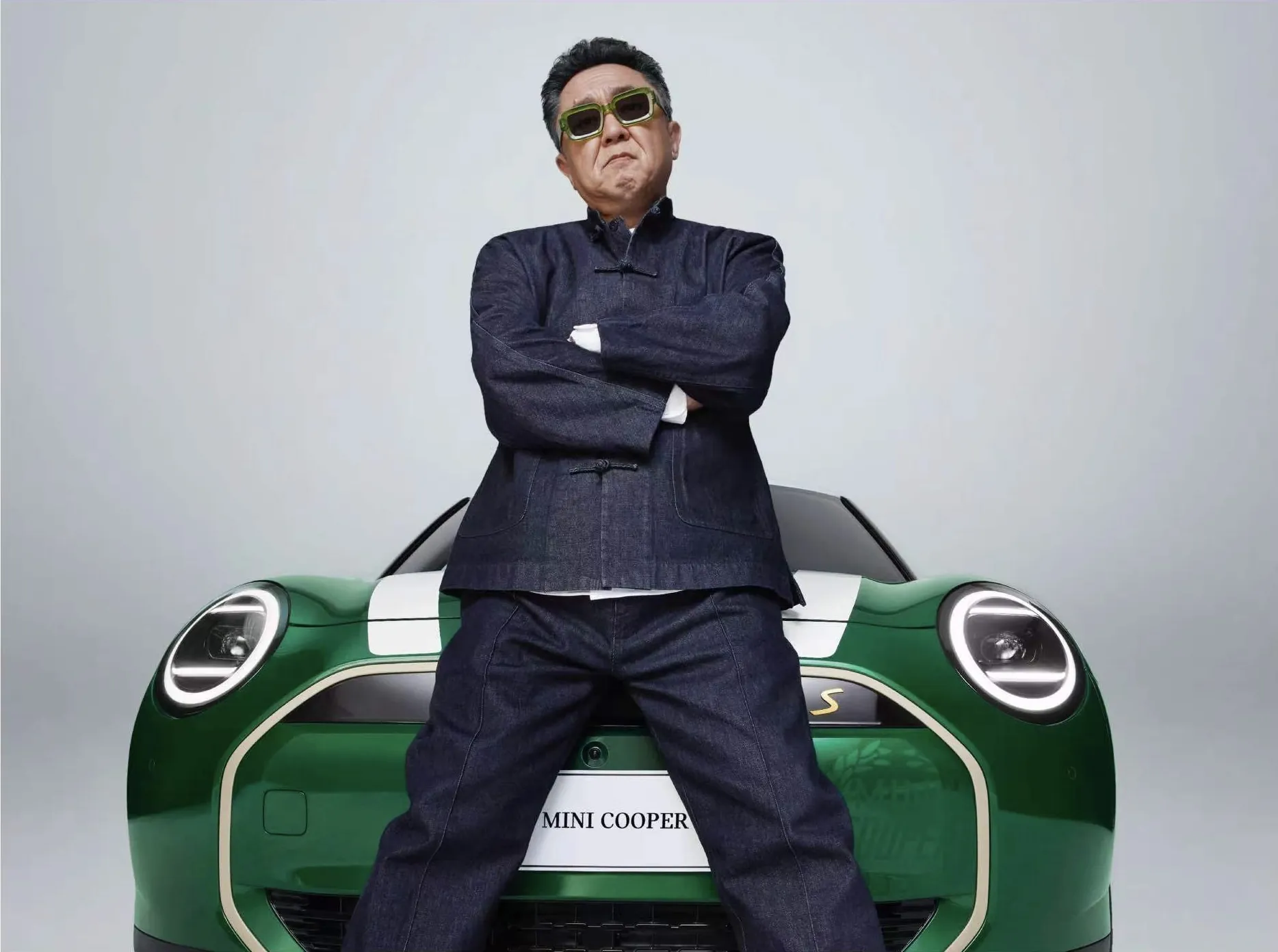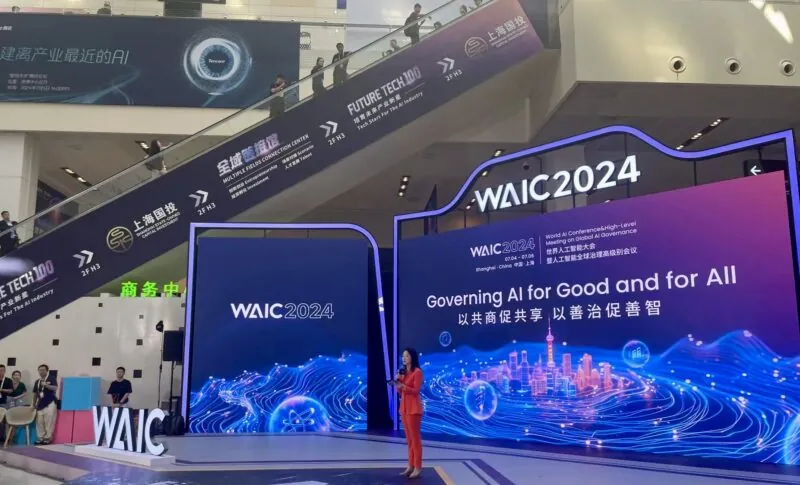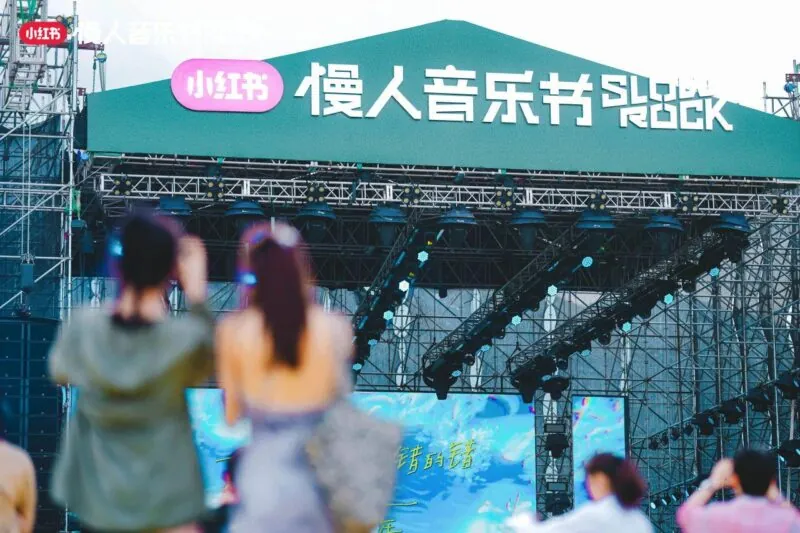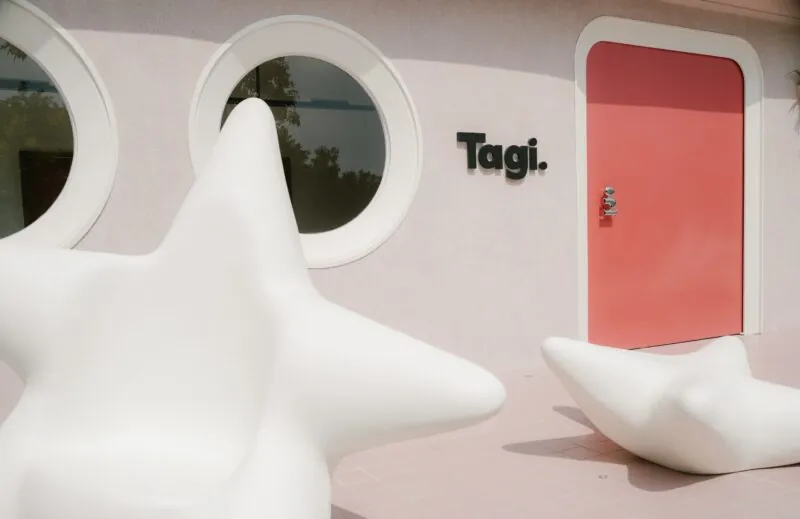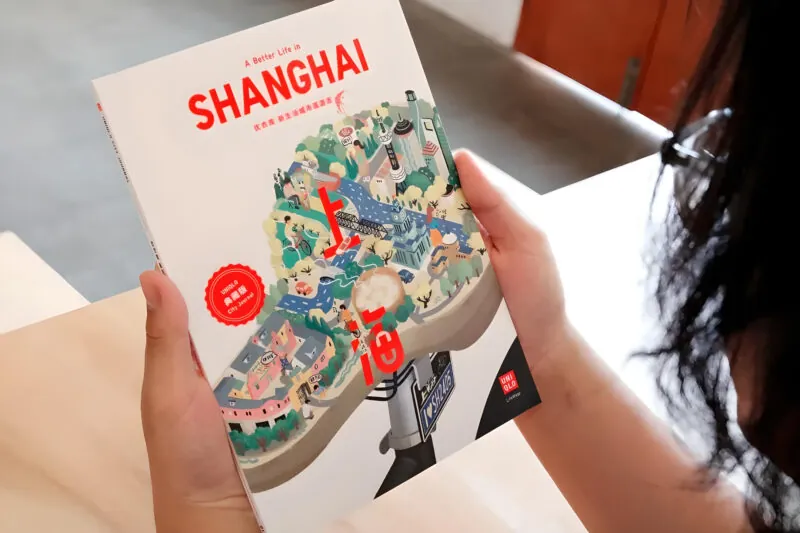Key takeaways:
- Mini teams up with xiangsheng performer Yu Qian for its latest EV launch in Aranya.
- Yu and Mini released a Harper’s Bazaar fashion photoshoot and a promotional video, before Yu performing at the Aranya launch event.
- The campaign is hyperlocalised around the “erhuayin” rhotacisation of syllables, a Beijing dialect staple.
On 6 July, the BMW-owned British motor maker Mini hosted a launch event for its brand-new all-electric Mini Cooper 2024 in Aranya, Hebei, a seaside town near Beijing. The most-anticipated and also surprising guest of the event was Xiangsheng performer and comedian Yu Qian. The day before, Harper’s Bazaar released its photoshoot with Yu Qian and Mini and two days later, Mini released a promotional film with Yu. Many wondered why the youthful release of a small electric car in a youth culture mecca would invite the veteran comedian and traditional Xiangsheng performer?
Crosstalking
Xiangsheng, sometimes translated as “crosstalk”, is a traditional comedic show, comparable to the vaudeville double act. Performed by a lead actor (逗哏, dougen) and a supporting actor (捧哏, penggen). However, some clarification is need because despite what’s implied in the name, there is a variation that requires only one performer, similar to standup comedy.
Yu Qian is one of the most recognisable Xiangsheng performers. He’s a member of Deyunshe, a Xiangsheng-centric traditional performance group co-founded by Guo Degang, one of, if not the biggest name in the Xiangsheng circle in the past two decades. Yu Qian is known for being Guo’s sideman since 2002.
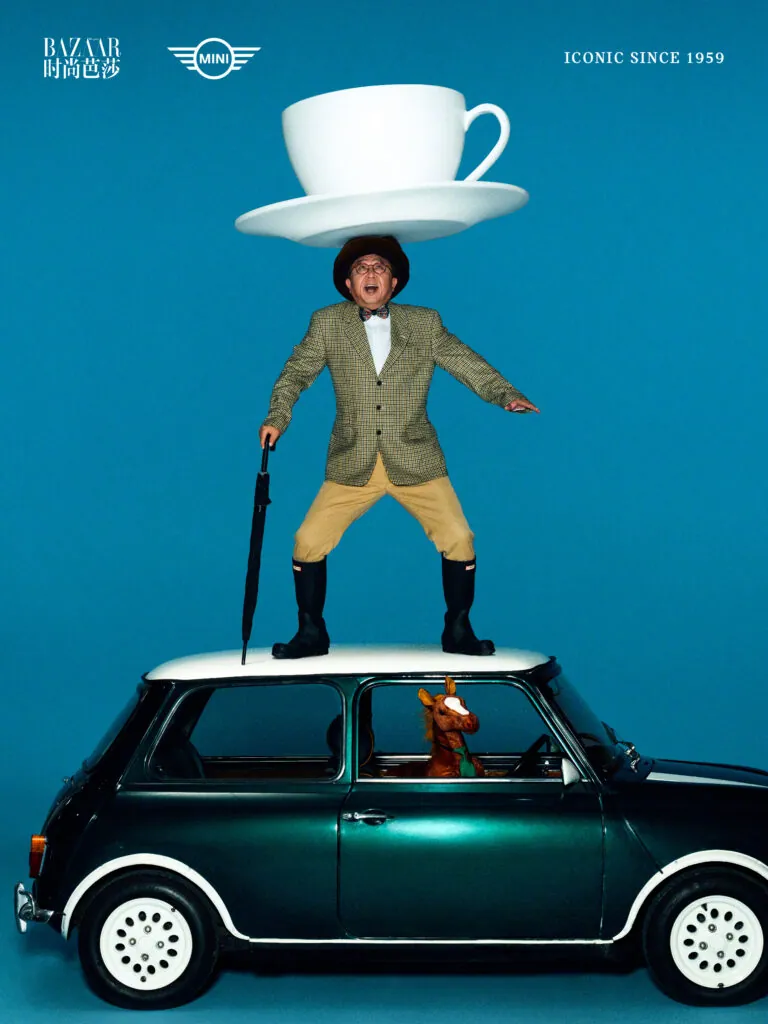
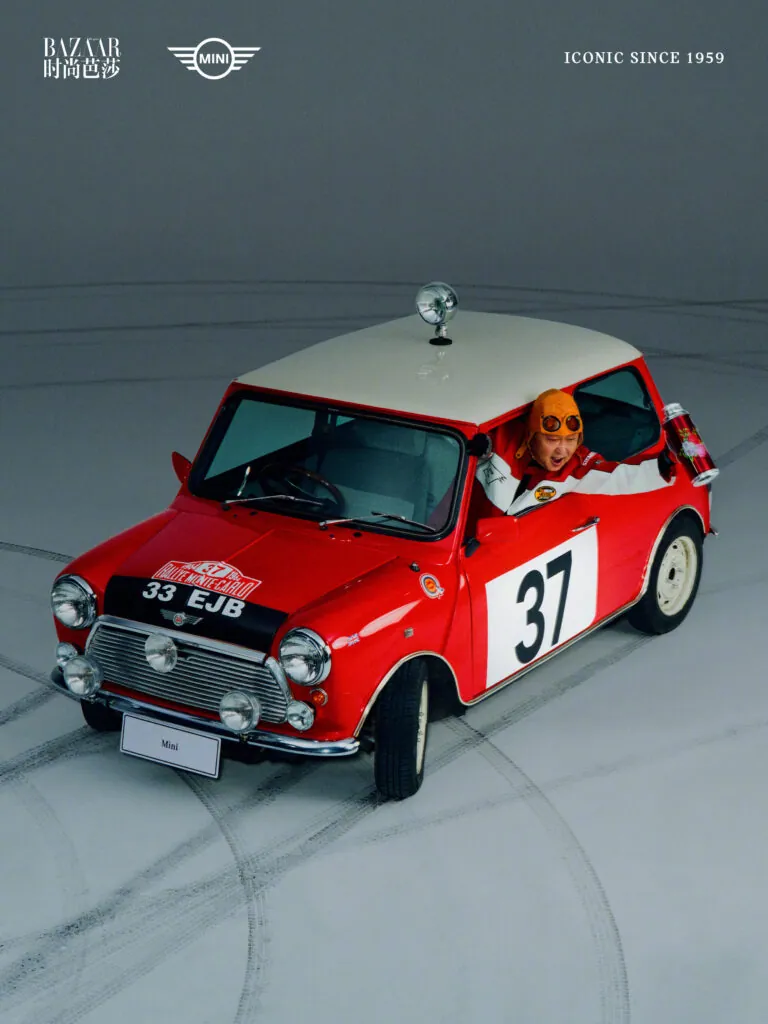
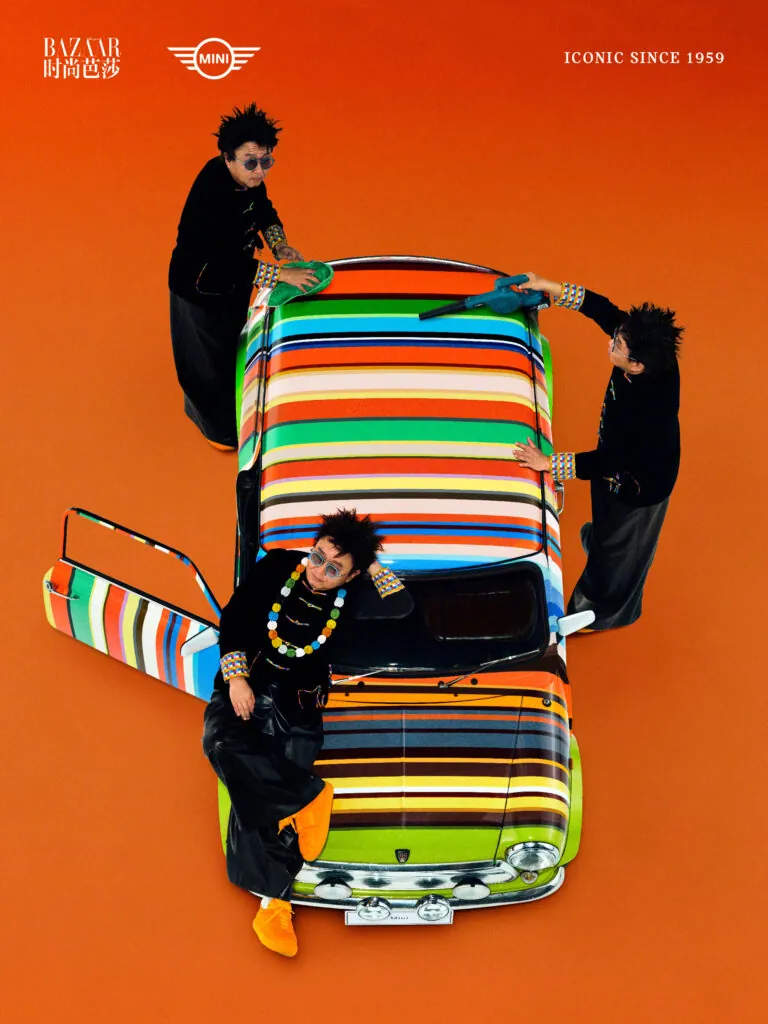
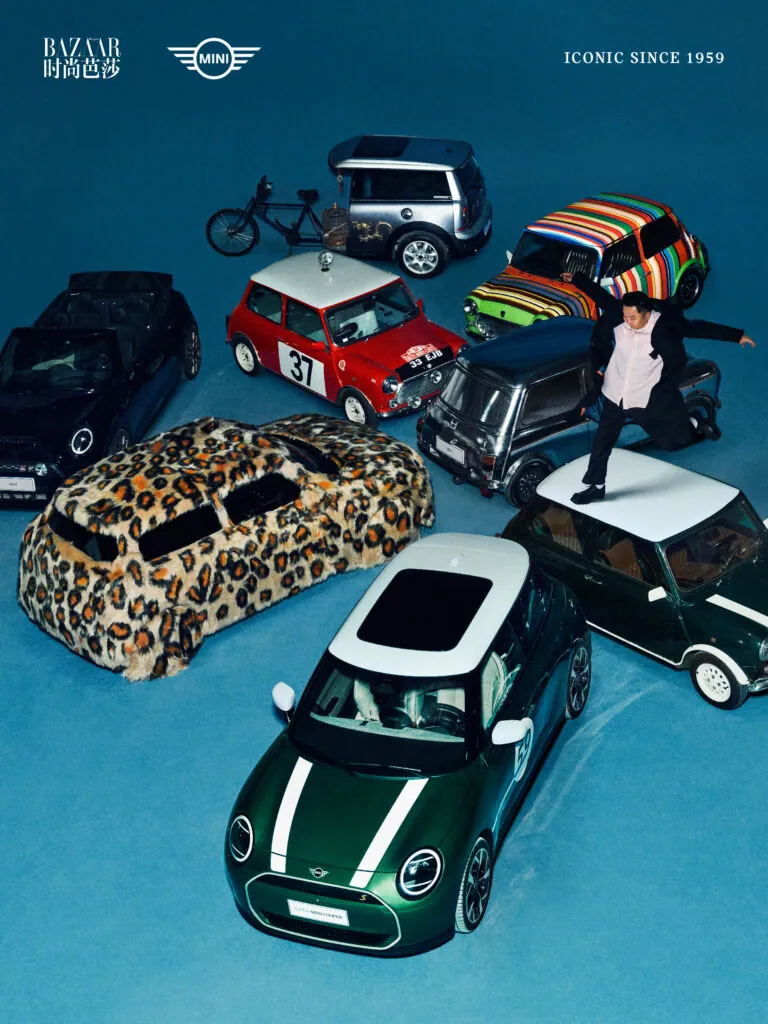
Deyunshe is particularly popular among younger Chinese audiences as they integrate internet-centric jokes into traditional performances. Guo and Guo’s disciples such as Yue Yunpeng have been seen extensively performing on TV, as well as appearing on variety shows competing with modern standup comedians.
Mini, Mini, Mini
It would seem that this mix of heritage and modern is what Mini looks for in Yu
It would seem that this mix of heritage and modern is what Mini looks for in Yu. Indeed, Yu appears with many classic Mini models from 1959 to today, including designer models such as the 1999 Paul Smith Signature Strip 40th anniversary model with Yu sporting all sorts of fashionable outfits. Incidentally, Mini also unveiled its 65th anniversary at the Aranya event, which also coincides with the Mini Cooper Trophy 2024 event.
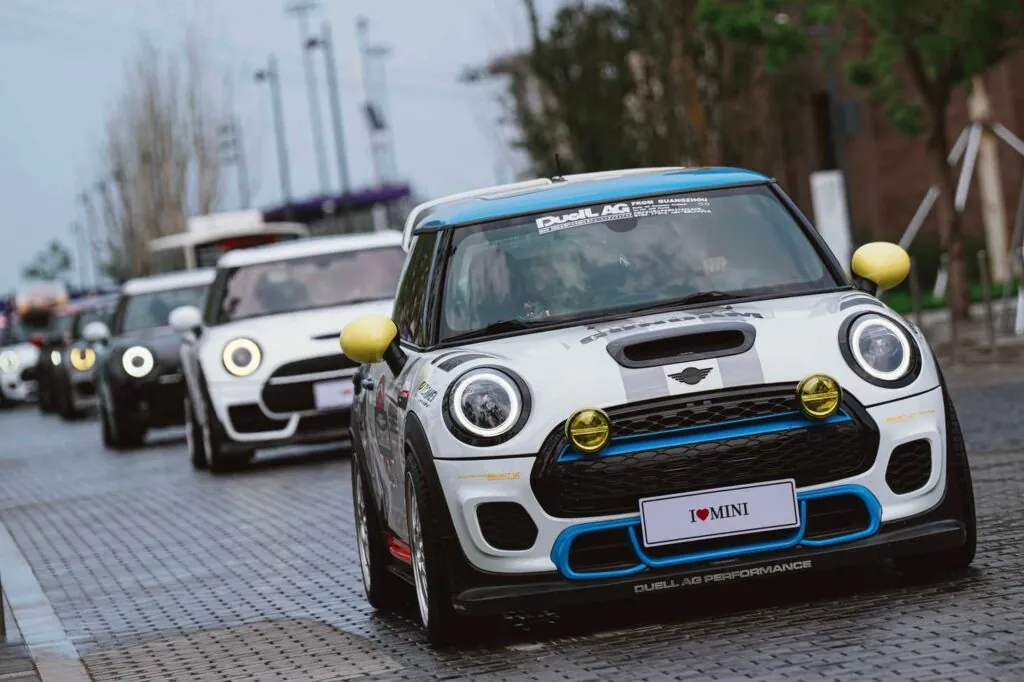
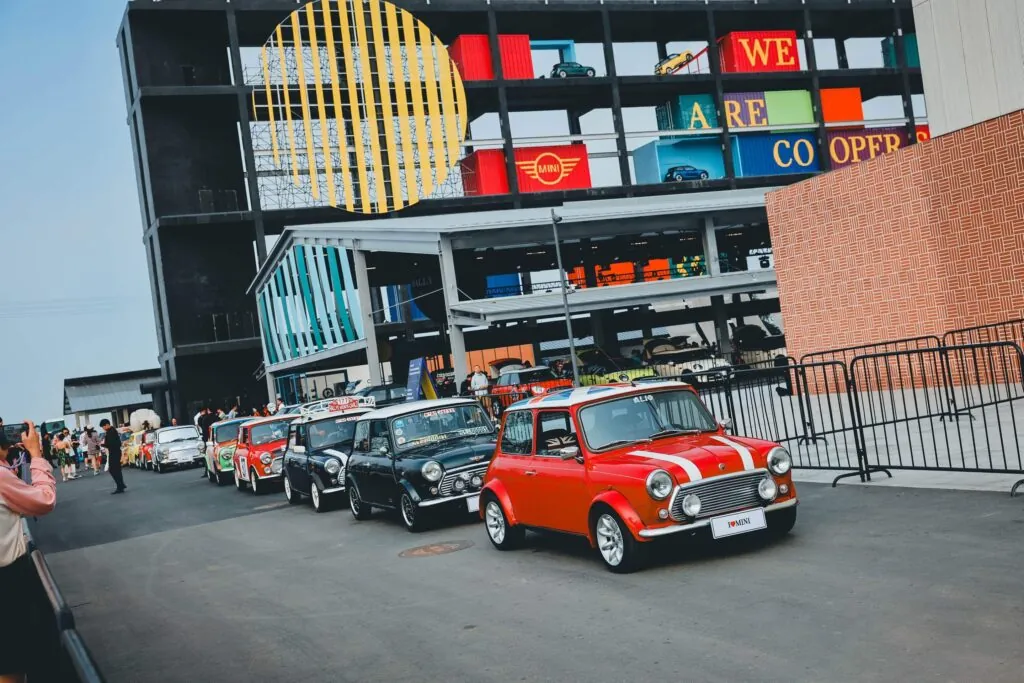
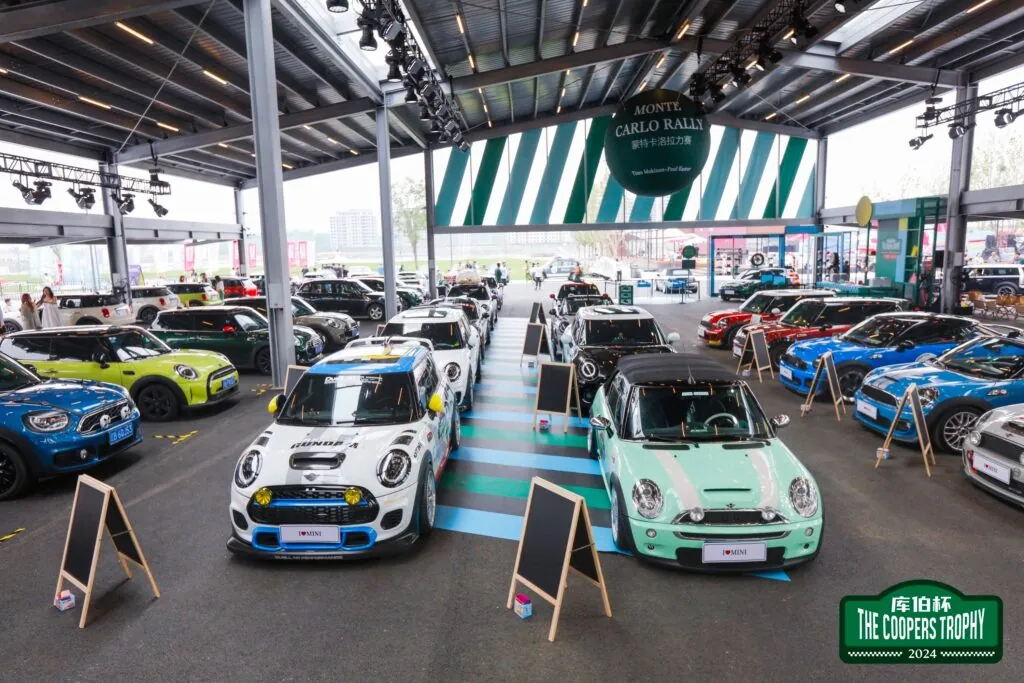
The event at Aranya, therefore, focused on the two aspects of history and the future. It was aptly named “Interesting souls don’t want to grow up” (有趣的灵魂不想长大), playing on the fact that growing up (长大) literally means “growing bigger” in Chinese, echoing the diminutive size of Mini Cooper cars. A procession of Mini Coopers lined the red carpet, including vintage examples, customised cars, racing liveries and commemorative models featured in the Bazaar photo shoot.
With a screen modelled after the electric Mini Cooper’s OLED dashboard, the event was presented as a variety show, with songs and comedy. The comedy was, of course, a Xiangsheng performance by Yu Qian and Mini China’s product manager Bowen. The pair used Xiangsheng as a vassal to convey features of the new EV, incorporating many a Beijing dialect phrase.
Shiver me timbers
If you speak with an “arrr” added after every other word in English, you might be mistaken for a pirate. But in China, it is a sign that you are (arrr) a true-born Beijinger. This is because of the “erhuayin” (儿化音), a signature in the Beijing dialect of Mandarin (not to be confused with Pekingese, the canine breed). According to Wikipedia, erhuayin is a pronunciation of “er” (儿) after rhotacization (sic) of syllable finals.
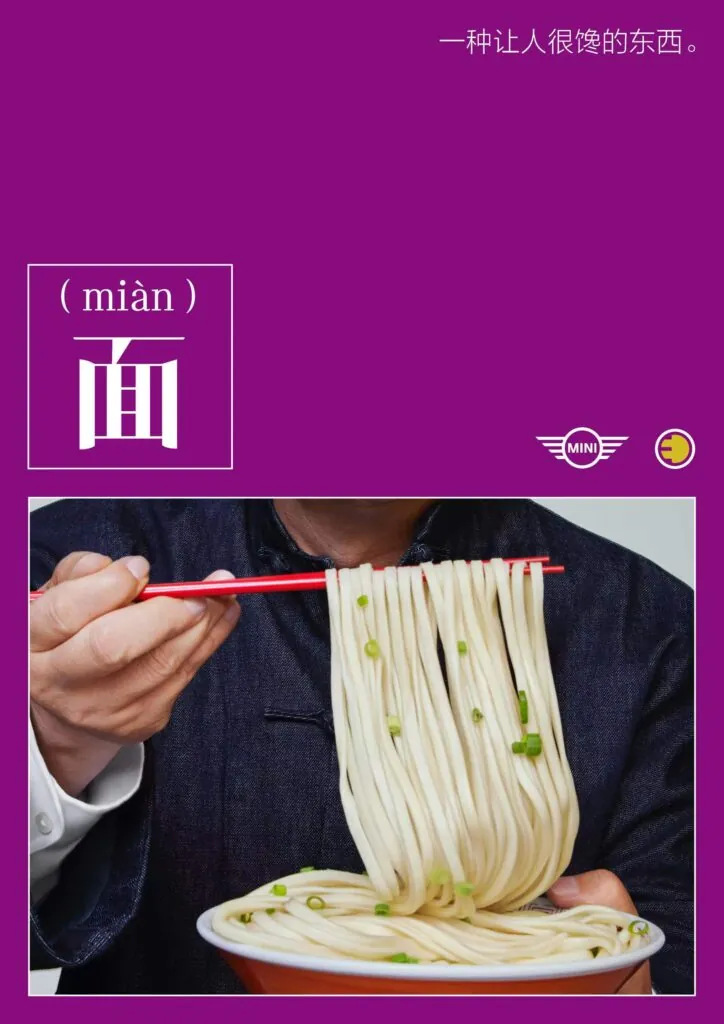
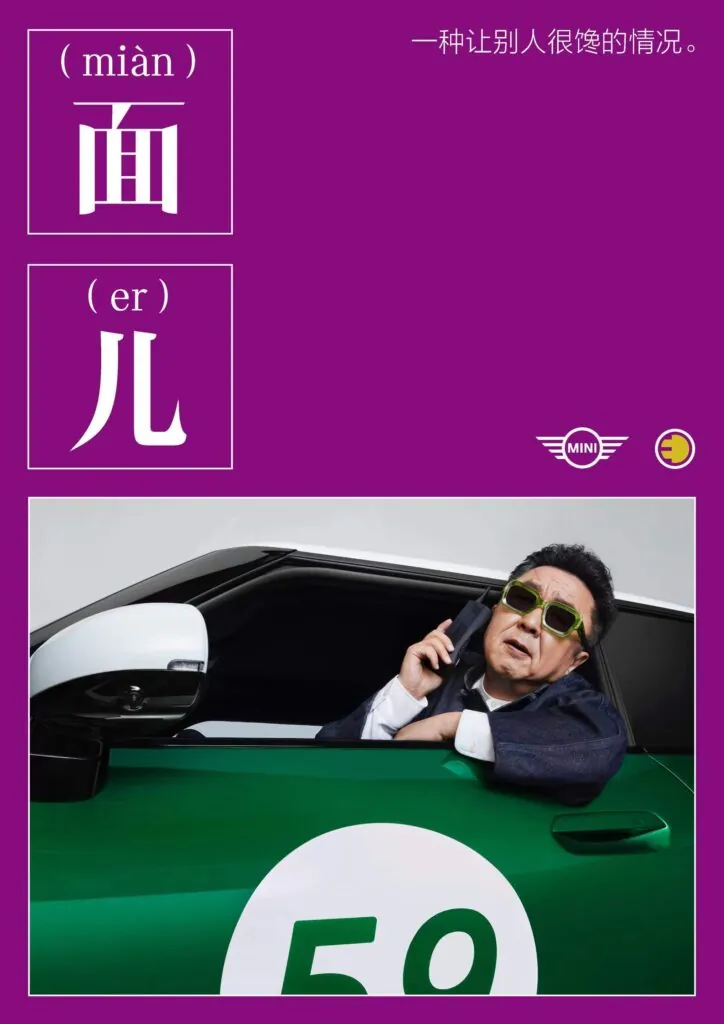
The Mini video campaign is built around this feature in the Beijing dialect. Yu Qian (or Yu Qian’er according to the man himself), a Beijing native, teaches you the different connotations of words with different intonations with or without the “er” at the end. The quick cut video introduces the fun and interesting facts about erhuayin while introducing the features of the new all-electric Mini Cooper. Examples include “头” (tou, lit. head), without the “er” means the body part while with it will mean the head of an organisation. The word “宝贝” (precious), means treasure when going without the “er” and is an affectionate form of addressing someone, similar to Gollum’s use in The Lord of the Rings Saga.
The Beijing dialect has been a source of fun online for some years now for both the erhuayin and its unique elision like slurring and omitting syllables in words. Mini’s campaign, although rather hyper-localised to Northern China where the culture is closer to Beijing, also focuses on the fun part of language that is well-known across the country. On Weibo, China’s Twitter-like platform, the topic “the cultural export of Beijing is next level” (#北京的文化输出已经nextlevel了#) garnered a whopping 33.56 million views.
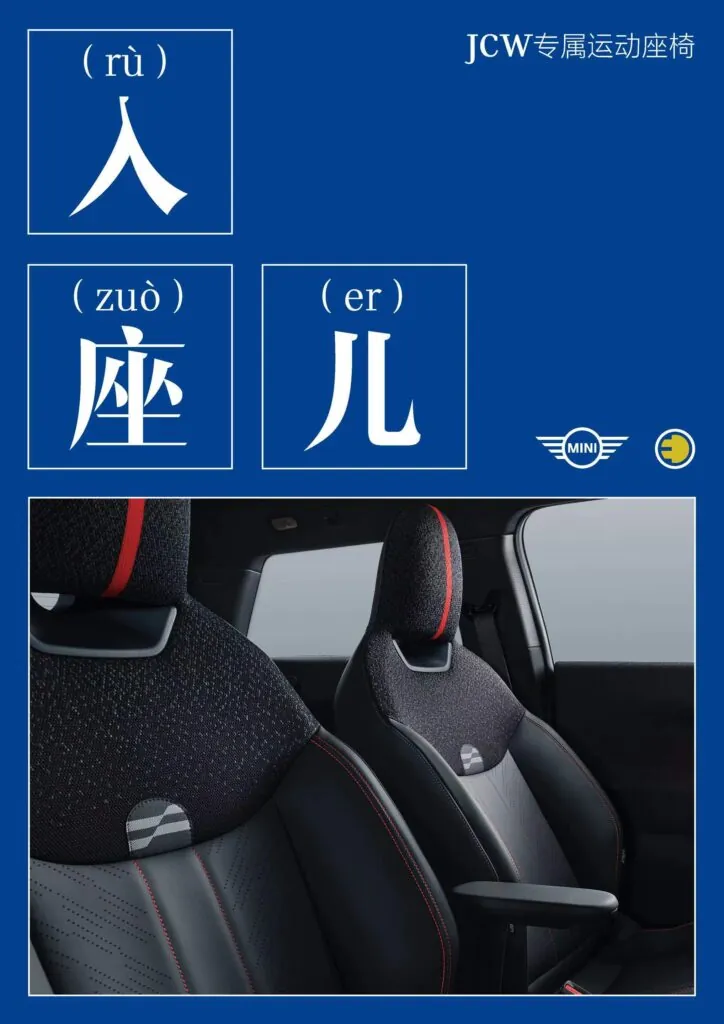
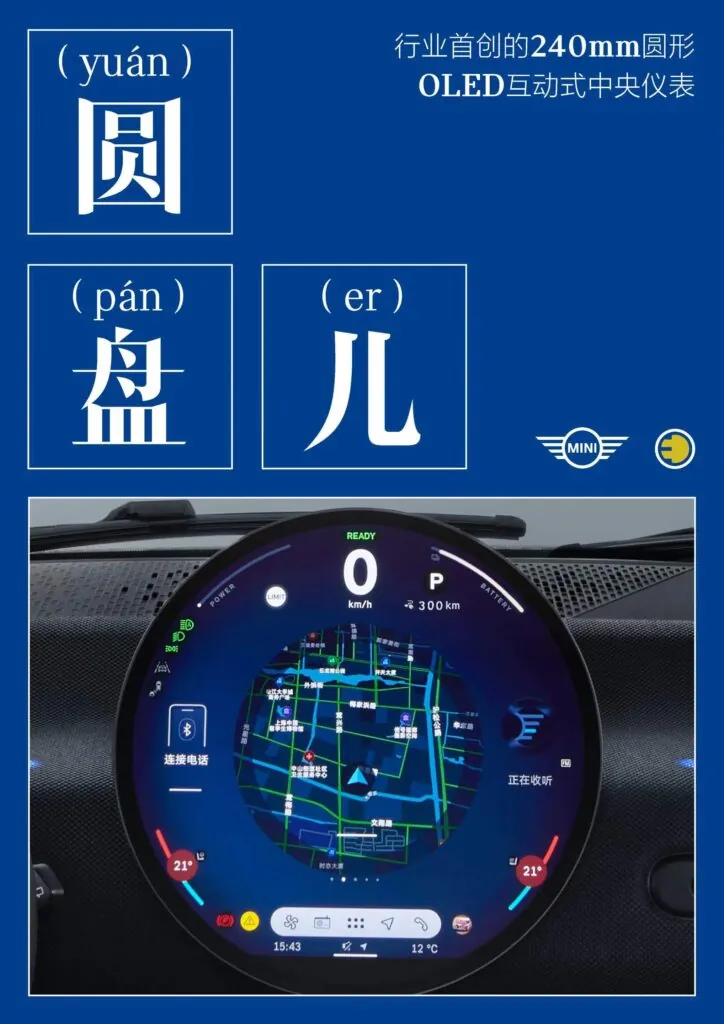
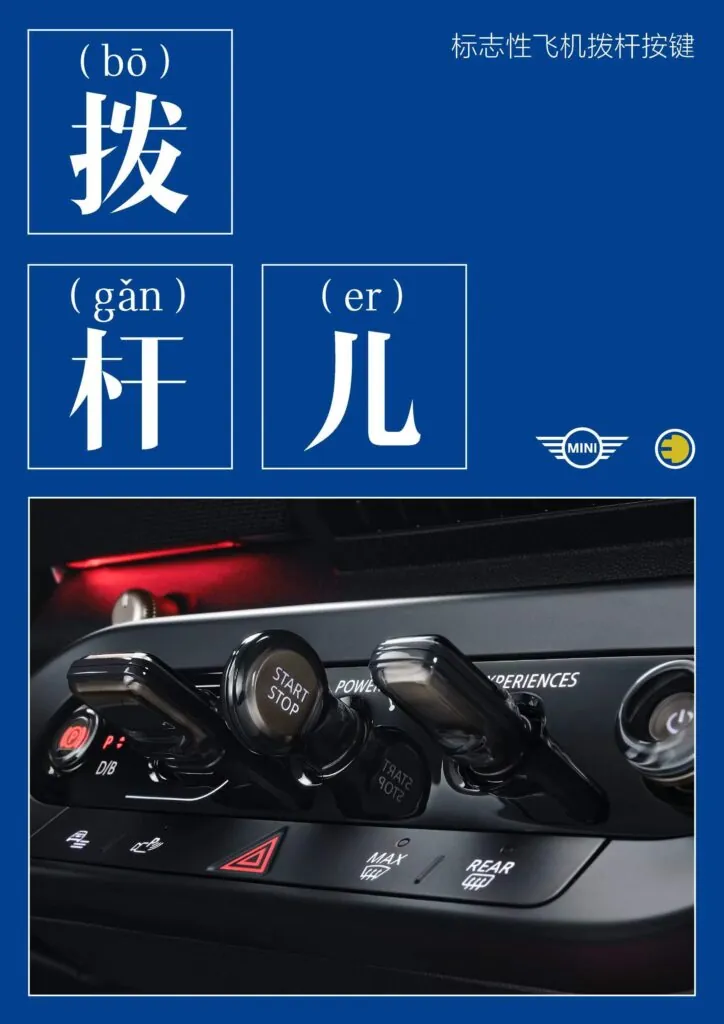
Beijing seems to be a location and culture many international brands try to base their hyper-localisation on
Indeed, Beijing seems to be a location and culture many international brands try to base their hyper-localisation on. Louis Vuitton just launched the latest edition of its Chinese-language podcast series, this time focused on the style of Beijing. Coincidentally, Apple also dropped a promotional video about cybersecurity featuring Yu’s fellow Deyunshe member Yue Yunpeng.
After successfully leveraging hyper-localisation in cities such as Shanghai, where there are a large number of consumers and is also a well-known cultural destination for the rest of China, brands are starting to look for the next Shanghai. Arguably, being the capital and self-claimed cultural centre of China, Beijing is an even more familiar candidate. But whether the culture of Beijing can attract young and fashionable consumers like the sophisticated coolness of Shanghai is worth watching.
Acknowledgement: the author was born and bred in Beijing so should have a pass for the above opinion.




